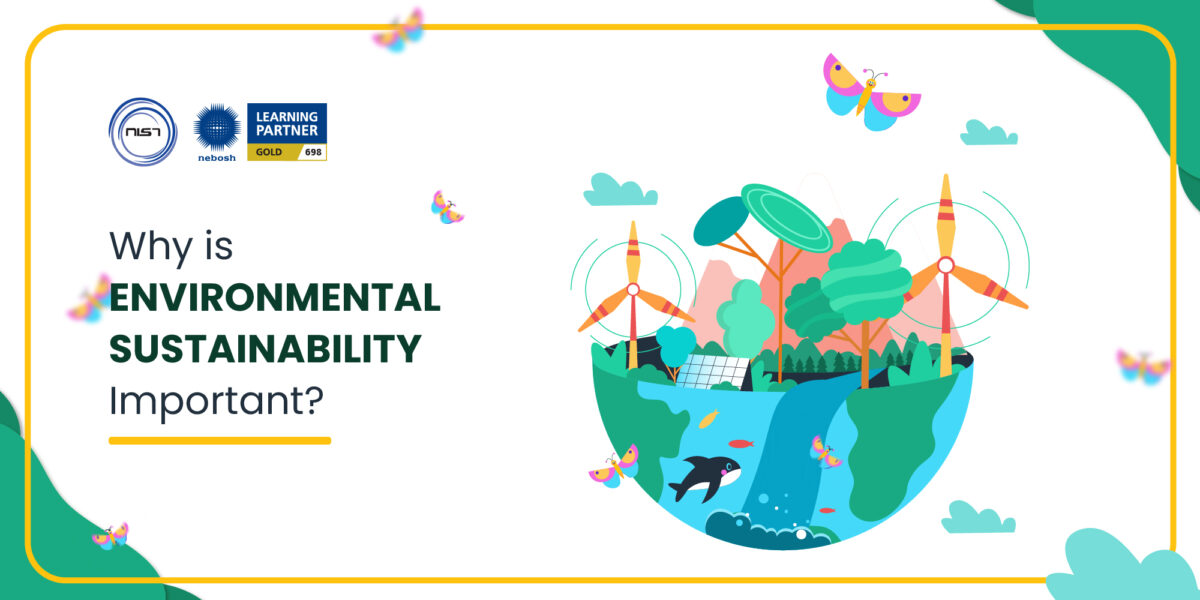Why is Environmental Sustainability Important?

Simply explained, sustainability is the capacity to hold something steady at a particular rate or level. This might be applied to anything at all, including your diet for losing weight and the environment and the planet Earth.
Different perspectives on sustainability in business exist. However, business sustainability is currently defined as conducting business without having a negative impact on the environment, the community, or society as a whole (ESG). ESG is basically a primary context in which business sustainability is often referred to.
Therefore, the objective goes beyond establishing a sustainable firm that produces goods from recycled resources. It is simply not about using natural and eco-friendly products. Consider an auto manufacturing company to better grasp this concept. The use of non-renewable fossil fuels in the manufacture of automobiles not only contributes to the loss of natural resources but also increases air pollution, which is harmful to the environment and hastens global warming. However, that is only one of the most basic ways to think about this issue.
In a larger sense, sustainability means choosing solutions with a longer time horizon over those with a shorter time horizon or a lower cost. Therefore, if the same auto manufacturing company were to consider sustainability, it might decide to produce hybrid or electric cars. Sustainability also includes efforts to optimise operations and supply chain activities to reduce greenhouse gas emissions, use renewable energy sources like electricity from solar panels in manufacturing facilities, and educate not only customers but also children and the local community about the benefits of doing so.
Many company evaluation methods, such the triple bottom line and ESG benchmarking, have been developed in order to promote business sustainability. Effective use of these models can boost commercial operations.
3 Pillars of Sustainability
#1 Environmental Protection
To maintain a clean and healthy environment, environmental protection involves preserving ecosystems, air quality, the integrity of our resources, and their sustainability.
#2 Economic development
It is the process of achieving a suitable degree of economic well-being for people now without jeopardising their ability to enjoy the same financial advantages in the future.
#3 Social development:
It is ensuring that everyone has access to the necessities for a high level of social fulfilment, including eradicating poverty and hunger, raising the bar for healthcare and education, and improving sanitation and water quality.
The Future Generation – What if we don’t act now?
The health and well-being of future generations would be severely jeopardised if significant action is not taken today to achieve environmental sustainability. As extensive farming impacts the fertility of the soil and the capacity of the water supply, the food supply will also become unstable. Global warming caused by greenhouse gas emissions from burning fossil fuels will amplify the effects of climate change, causing more severe weather, floods, droughts, and shifts in growing seasons that will upend society. Pollution of the land, air, and water will greatly hinder our quality of life as well as the ability of local communities and the larger community to prosper. In other words, environmental sustainability is vital to both human and environmental survival.
There are many benefits to sustainability, both now and in the future. We won’t be able to maintain our current course or conserve the ecosystems of our world if more sustainable decisions are not made. It’s likely that civilization will run out of fossil fuels, several animal species will go extinct, and the atmosphere would be permanently damaged if detrimental processes continue unchecked. The increase of dependable resources, clear and pure water, clean air, and nontoxic atmospheric conditions are all benefits of sustainability.












Responses